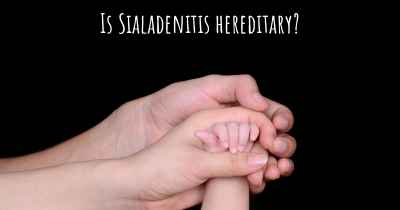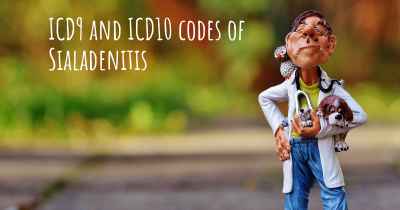Which are the causes of Sialadenitis?
See some of the causes of Sialadenitis according to people who have experience in Sialadenitis

Sialadenitis is a condition characterized by the inflammation of the salivary glands, which are responsible for producing saliva. This inflammation can occur in any of the major salivary glands, including the parotid, submandibular, and sublingual glands. The causes of sialadenitis can vary, but they typically involve an obstruction or infection within the salivary glands.
Obstruction: One of the primary causes of sialadenitis is the obstruction of the salivary ducts. This obstruction can be caused by various factors, such as the presence of salivary stones or calculi. These stones can form within the salivary glands and block the flow of saliva, leading to the development of inflammation. Additionally, strictures or narrowing of the ducts can also cause obstruction and subsequent inflammation.
Infection: Infections are another common cause of sialadenitis. Bacterial infections are the most frequent culprits, with Staphylococcus aureus being the most commonly implicated bacterium. These infections can occur when bacteria enter the salivary glands through the ducts, often due to poor oral hygiene, reduced saliva flow, or decreased immune function. Viral infections, such as mumps, can also lead to sialadenitis, although they are less common.
Dehydration: Dehydration can contribute to the development of sialadenitis. When the body is dehydrated, there is a decrease in saliva production, which can result in thickening of the saliva. This thickened saliva can obstruct the salivary ducts, leading to inflammation. It is important to maintain proper hydration to prevent this condition.
Autoimmune Disorders: Certain autoimmune disorders, such as Sjögren's syndrome, can cause sialadenitis. In these conditions, the immune system mistakenly attacks the salivary glands, leading to inflammation and reduced saliva production. This can increase the risk of developing infections and subsequent sialadenitis.
Trauma: Trauma to the salivary glands or ducts can also be a cause of sialadenitis. Injuries, such as fractures or surgical procedures, can disrupt the normal functioning of the salivary glands and ducts, leading to inflammation. Additionally, the use of feeding tubes or prolonged intubation can also contribute to the development of sialadenitis.
Other Factors: Other factors that can contribute to sialadenitis include poor oral hygiene, certain medications (such as antihistamines or diuretics), radiation therapy to the head and neck region, and underlying medical conditions that affect saliva production.
In conclusion, sialadenitis can be caused by various factors, including obstruction, infection, dehydration, autoimmune disorders, trauma, and other related factors. It is important to identify and address the underlying cause to effectively manage and treat this condition.








